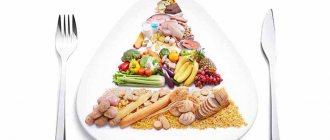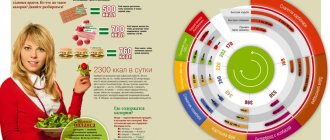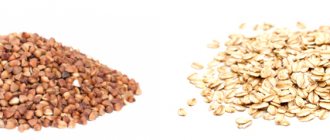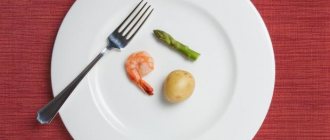Creating a large calorie deficit
The human body is perfectly adapted to exist in conditions of hunger.
Therefore, when you sharply reduce the caloric intake of your diet, the body immediately adapts to the new conditions and begins to save energy. The 2009 study Metabolic and behavioral compensations in response to caloric restriction: implications for the maintenance of weight loss showed that severe calorie restriction (890 kilocalories per day) reduces the body's energy expenditure. Three months after finishing the diet, study participants spent 431 kilocalories less per day than the control group, and after six months - 240 kilocalories less.
The 2006 Metabolic response to short-term 4-day energy restriction in a controlled study found that limiting calories to 1,114 calories per day reduced basal metabolic rate by 13%, and to 1,462 kilocalories per day by 6%.
Metabolic adaptation to caloric restriction and subsequent refeeding: the Minnesota Starvation Experiment revisited. A 2015 study found that three weeks on a strict diet restricting calories to half normal reduced resting energy expenditure by 266 kilocalories per day and walking energy expenditure by 22%.
When you achieve your weight loss goals and switch to a regular diet, your body, tuned to conserve energy, consumes calories at the same rate, but spends them very reluctantly. As a result, you quickly gain back the lost pounds.
How to fix
Do not limit your diet to more than 25% of your caloric intake, taking into account your weight, age, gender and lifestyle. Lifehacker talked about how quickly you can lose weight without harming your health in this article.
Skipping meals
Many people believe that by skipping meals they will lose weight faster. For example, a person skips breakfast or goes without lunch at work, but at the same time eats a very rich and high-calorie dinner.
This weight loss strategy does not bring good results. First, after a whole day without food, extreme hunger will cause you to eat much more than usual. Second, skipping meals can negatively impact your blood sugar, metabolism, and energy levels.
The 2003 Association between Eating Patterns and Obesity in a Free-living US Adult Population study suggested that eating habits are to blame for excess weight gain. The results showed that eating four meals a day reduced the risk of obesity compared with three or fewer meals a day. In addition, obesity rates were significantly higher among participants who skipped breakfast, as were those who ate breakfast and dinner outside the home.
How to fix
Try to eat at regular intervals from the moment you feel hungry. For example, if you're hungry when you wake up or know you'll be hungry at 10 or 11 a.m., prepare a nutritious breakfast and divide your subsequent meals into lunch, a small snack, and dinner. If the first signs of hunger appear closer to lunch, leave lunch, a small snack and dinner, but try to have meals at the same time.
Eating too fast
Hectic times and a number of responsibilities reduce the time for food . We are in a hurry in the morning, and in the evening we don’t have time to have dinner . Eating food too quickly is not only unpleasant, but also harmful to our health . If you consume quickly, your body will not be able to send a signal to your brain that you are starting to feel full. The brain needs information from the stomach , as well as instructions from hormones that partially digest food, that food has already passed through the digestive tract . These processes usually take 15 to 20 minutes. [8]
A study conducted in Japan studied three groups of people for 5 years. The subjects ate quickly, at a normal pace, and slowly. 11.6% of people who ate fast were more likely to develop metabolic syndrome . The results in other groups were significantly lower. People who ate at a normal pace had a 6.5% propensity, while those who ate slowly had only a 2.3% propensity.
Metabolic syndrome is not a disease itself , but a group of risk factors that lead to the disease. These include obesity, high blood pressure, elevated levels of “bad” fats and elevated blood sugar levels. The occurrence of one of the above factors can be considered as this syndrome. The combination of several factors further increases the risk of other diseases. However, the positive thing is that you can control metabolic syndrome. However, this requires a drastic lifestyle change . [8] [9] [20]
Workload and fast lifestyle is the reason why we eat quickly and often do not do it while sitting at the table. Eating at a normal pace is not only a time to enjoy food, but also an opportunity to prevent serious illness . Start eating at the table and without stress and time pressure.
Lack of protein in the diet
Protein keeps you full, reduces calorie intake, and plays a key role in maintaining muscle mass during weight loss.
A randomized crossover, pilot study examining the effects of a normal protein vs. high protein breakfast on food cravings and reward signals in overweight/obese “breakfast skipping”, late-adolescent girls 2014 showed that a high-protein breakfast (35 and 13 grams of protein) reduces cravings for sweet and salty foods between meals.
Study The influence of higher protein intake and greater eating frequency on appetite control in overweight and obese men. 2010 found that for the same daily caloric intake, a high protein intake (138 grams per day) provides greater satiety compared to a normal intake (71 grams).
Feeling full directly affects your calorie intake throughout the day. Twelve-day study Protein leverage affects energy intake of high-protein diets in humans. found that people consuming 30% of their daily calories from protein ate an average of 575 fewer calories than those consuming 15% of their calories from protein.
In the process of losing weight, you inevitably lose muscle mass along with fat. Protein helps protect the body from this unpleasant effect of dieting. The 2013 Normal Protein Intake Is Required for Body Weight Loss and Weight Maintenance, and Elevated Protein Intake for Additional Preservation of Resting Energy Expenditure and Fat Free Mass found that high protein intake (2.1 grams per kilogram of body weight) during a low-calorie diet allows you to maintain muscle mass, increase energy expenditure at rest and lower blood pressure.
How to fix
Aim for 30% of your daily calories from protein. You can get it from these products.
Have you eliminated fats from your diet?
Fat generally considered an undesirable substance that simply makes a person gain weight. However, there are several types of fats . Some of them are beneficial or healthy and our body needs them to function properly, so you can't avoid them in your diet . In the human body, fat is a nutrient that provides energy : 1 gram of fat contains 9 calories . Our body needs them due to the absorption of vitamins A, D, E and K. Fats are divided into two main types – saturated and unsaturated. We usually take both types in our diet, but in different proportions. [18]
Saturated fats
They can be recognized by their solid state at room temperature. High consumption of these fats increases levels of "bad" cholesterol , causing the risk of heart disease . The term saturated is used because all fat molecules are saturated with hydrogen atoms. Saturated fats can be found in:
- animal products - meat, milk and cheese
- tropical oils – palm oil, coconut oil
Tropical oils can be found in many foods. In particular, palm oil is an ingredient in various delicacies and food products. Saturated fat is also found in foods cooked with butter or margarine, such as desserts and cakes . [18] [19]
Unsaturated fats
Unlike saturated fats, unsaturated fats are not solid at room temperature . They are found mainly in natural vegetable oils and are among the “good” fats that increase cholesterol levels in the body. They can be divided into two main types [18] [19] [21]:
- Monounsaturated fats – contain one double carbon bond and are found in olives, olive oil, nuts and avocados. However, higher intake of these fats without reducing intake of saturated fat will not reduce LDL cholesterol levels. Monounsaturated fats also include omega-9 fatty acids , found in vegetable seed oils and vegetables.
- Polyunsaturated fats – This type of fat is very healthy . They can be found, for example, in sesame, sunflower, soybean or corn oil. It is also the main type of fat in seafood and fish . Polyunsaturated fats include: Omega-3 fatty acids – lower cholesterol and are good for skin conditions, arthritis and joint pain . You can get them from fish such as salmon, sardines or trout. They are also found in soybean and canola oil, nuts or flax seeds.
- Omega-6 fatty acids are anti-inflammatory and are found in vegetable oils such as soybean or corn oil.
To learn more about omega-3 and omega-6 fatty acids , read our article – Omega-3 Fatty Acids: Are You Getting Enough of Them and the Correct Ratio to Omega-6?
Trans fats
Trans fats are industrially produced and do not occur in nature . They are produced by hydrogenation, adding hydrogen to liquid vegetable oils to achieve a solid state at room temperature . Products containing trans fats are harder and crispier . They are contained in [18] [19]:
- salad dressings
- cookies and various sweets
- processed food
- cakes, pastries, pizza dough and chips
This type of fat is not good for the body . Their consumption increases the level of "bad" LDL cholesterol and decreases the level of "good" HDL cholesterol . The risk of heart disease is three times higher when consuming trans fats than other fats. [19]
Our body to function . Saturated and trans fats can cause serious illness if consumed in excess. You must control their consumption. When purchasing food, it is important to monitor the composition of food and distinguish between the content of “good” and “bad” fats in food.
Liquid diets
Often people who want to lose weight with minimal effort prefer liquid diets. However, fruit or vegetable juices won't provide your body with enough fiber and protein, key nutrients needed to feel full.
The 2000 Dietary Fiber and Energy Regulation study found that fiber helps control caloric intake and reduces the risk of obesity.
These findings were confirmed by the 2011 study Effects of dietary fiber on subjective appetite, energy intake and body weight: a systematic review of randomized controlled trials. Scientists have found that dietary fibers high in pectin (apples, citrus fruits) and beta-glucan (oats, barley) reduce appetite, which leads to less calorie consumption.
How to fix
Don't go on liquid diets, get enough protein and fiber.
Don't read food labels
Do you choose products based on their packaging or ingredients? labels should not be overlooked as they contain a list of ingredients and their quantities in the product . However, with distinctive labels and slogans on the front , such as “healthy, natural, low fat,” we often forget to check the actual ingredients of the products. This is important because the label “ healthy or healthy” does not guarantee that it is actually a healthy product. You might be surprised how many products have better advertising and packaging than the ingredients. "Low-fat labels may hide high amounts of sugar, salt or calories . Therefore, it is always important to make an effort and read the detailed composition of the product on the back of the package. [12]
Product content is important for all of us, and especially for people who are trying to lose weight . Here are the most important components to pay attention to [1] [13] [24] [25]:
- Carbohydrate and added sugar content – Carbohydrates and sugar are not the same thing because carbohydrates sometimes include starch and fiber . Sugar includes natural, milk, fruit, and added sugar . This particular food ingredient significantly increases your calorie intake , so it's important to keep track of how much of your carbohydrates come from sugar.
- Fats – As mentioned above, not every type of fat is healthy . It is advisable to note the total amount of fat and the proportion of saturated fat . Saturated fats lower the level of “good” HDL cholesterol in the body and are only suitable in small quantities.
- Fat content in meat - when purchasing meat and meat products, it is necessary to observe the ratio of “clean” meat and fat . Low levels of animal fat are good for the body, but excessive consumption of saturated fat carries certain risks . It increases levels of “bad” cholesterol, leads to obesity and can cause cardiovascular disease.
Elimination of fats
Fats are essential for healthy skin, joints, good vision, memory and mood. In addition, without enough fat, vitamins A, D, K and E are not absorbed in the body, which can lead to vitamin deficiency and health problems.
To lose weight, it is more important to reduce the amount of carbohydrates, not fats. Although fat contains about 9 kilocalories per gram, and carbohydrates and protein contain only 4 kilocalories, various studies show that low-carb diets are more effective than low-fat diets.
For example, the 2003 study A Low-Carbohydrate as Compared with a Low-Fat Diet in Severe Obesity found that after six months on a low-carbohydrate diet, participants lost three times more pounds than people who limited their fat intake.
In another 2003 study, Effects of a low-carbohydrate diet on weight loss and cardiovascular risk factor in overweight adolescents, participants lost 2.4 times more pounds over 12 weeks of a low-carbohydrate diet than people on a low-fat diet.
Review of Effect of low-fat diet interventions versus other diet interventions on long-term weight change in adults: a systematic review and meta-analysis of 53 scientific studies found that low-carbohydrate diets lead to greater weight loss results than low-fat diets fat
How to fix
You should not greatly reduce the amount of fat in your diet, but it is advisable to give preference to unsaturated fats, which are found in fish, avocados, nuts and vegetable oils.
Basic mistakes when losing weight
Most women have gone on a diet at least once in their lives, hoping to get a slim figure, get rid of an inferiority complex, increase self-esteem or solve some other problems. According to statistics from a survey among women:
- Lose weight and maintain weight – 19%
- Stay at their weight – 47%
Unfortunately, it is worth noting that due to mistakes made when trying to get rid of excess weight, the result does not always correspond to the efforts made: the weight went away, but quickly gained again or decreased too slightly, problems with the health and condition of hair, nails, and skin appeared. Let's look at what mistakes women make when losing weight and how to lose weight without harming your health.
Physical activity without diet
Exercise is essential for health and maintaining muscle mass while losing weight. However, without changing your eating habits, exercise will not lead to significant weight loss.
People often overestimate the number of calories burned during exercise. For example, if a girl weighing 60 kilograms runs for 30 minutes at an average speed of 8.5 km/h, she will burn only 250 kilocalories. For an untrained overweight person, 30 minutes of running are unrealistic numbers. At the same time, just four or five chocolate chip cookies or one can of beer will replenish all energy costs.
Another problem with this approach to weight loss is the increased calorie intake after exercise. Often after physical activity, people give themselves permission to eat whatever they want, including sweet and fatty foods.
Research Is it fun or exercise? The framing of physical activity biases subsequent snacking 2015 found that when people perceive physical activity as a necessity, they are more likely to consume tasty post-workout snacks than when the activity is fun.
How to fix
Exercise, but remember that this will not help you lose weight without dieting. Make both exercise and nutrition a part of your life and think of exercise as a fun, rewarding experience. Otherwise, you won't last long and will reward yourself for your efforts with high-calorie food.
Unrealistic goals and quick results
Many people, when starting to lose weight, set themselves absurd and unrealistic goals.
The mistake is the mindset of quick results and the inability to plan a diet in the long term. The first problem here is the connection with reality. Despite diets that promise quick and easy weight loss, the actual loss is 0.5-1 kg per week (although for very overweight people this figure may be higher, but the thinner a person becomes, the slower the weight comes off).
Of course, on a strict diet, you can lose much more, but this will happen at the expense of water, the contents of the gastrointestinal tract and partially muscles, and fat loss still remains at the same level - 0.5-1 kg per week.
Losing a kilogram per week is the normal rate of weight loss for an overweight person. And for someone with an extra 25 kg, it may take six months to a year of dieting. More is possible, since the weight does not go away linearly. Are you ready to be constantly hungry on a strict diet all year? Hardly.
If you are carrying a lot of excess weight, you should start thinking about losing weight in the long term. You need to make changes to your diet and workouts so that you can maintain the regime for a long time.
One needs to create small, sustainable lifestyle changes and avoid any extreme approach or extremes. They are easier to maintain over time, even if they do not produce results quickly. But it is precisely because you can maintain them for a long time that they guarantee better results over the long haul.
The second problem: many people who want to lose weight think that as soon as they achieve results, they can return to their old habits and lifestyle.
They view diet and exercise as something temporary, so they are ready to change their eating habits dramatically, because it won’t last long. Weight drops, but when you return to a normal diet, the fat returns. If you go back to the lifestyle that made you fat once, it will make you fat again.
And people always want to lose twice as much as they have already lost. They lose half a kilo a week, and now they want to lose a kilo. They lose a kilogram, but this quickly becomes not enough. But the rate of weight loss only slows down over time.
Monotony in training
The same exercises cause rapid adaptation in the body, so that your body will very soon begin to burn fewer calories for the same activity. As a result, your weight loss will slow down or stop altogether.
In addition, monotony kills interest in exercise, which can completely eliminate physical activity from your life.
The 2012 study, The Relationship between Physical Activity Variety and Objectively Measured Moderate-to-Vigorous Physical Activity Levels in Weight Loss Maintainers and Normal-Weight Individuals, found that a greater variety of moderate-to-vigorous exercise was associated with successful weight maintenance and loss.
How to fix
Change the types of training and intensity of training, try unusual exercises, supplement them with high-intensity interval training. Any load that is unusual for the body increases calorie consumption and speeds up metabolism for some time after training.
Expecting quick results that last a long time
Most dieters gain the weight back within a year. Rapid weight loss changes After dieting, hormone changes may fuel weight regain hormonal balance, slow down metabolism and increase hunger. When people return to their normal diet, these changes cause them to gain weight quickly.
And since willpower is a very limited resource, it is very difficult to maintain a strict diet for a long time. You can completely give up sugar, fatty foods, fast food and halve your calorie intake, but one night you will wake up next to the refrigerator, washing down chocolate with borscht.
Italian researchers Weight loss expectations in obese patients and treatment attrition: an observational multicenter study analyzed the results of several 12-month weight loss programs. It turned out that more than half of the women dropped out of the program before it ended. Scientists found that such participants had higher expectations for weight loss. The conclusion was drawn: the more kilograms a person expects to lose, the higher the risk of quitting a long-term diet, especially in the first six months.
Andy Bellatti
Las Vegas nutritionist and founder of the Society for Dietitian Integrity
Nine out of ten people who embrace slow change and set achievable goals remain successful three years after they started. I know many people who go on some kind of strict diet, lose many kilograms in a week, and after a few months they are back to where they started.
How to fix
The most winning strategy is slow, gradual change. Bellati advises The biggest mistake people to make when they decide to eat healthy, according to a nutritionist, their clients to set themselves up for long-term changes over 2-4 years. Don't try to lose weight quickly. Instead, reconsider your lifestyle: more healthy eating, activity and quality sleep, less processed and sugary foods, stress and lying down on weekends.
This approach will help you lose extra pounds in a few years, forget about exhausting and unhealthy diets, and never gain excess weight again.
Diets
Diets have three disadvantages:
- The first is that every now and then we have breakdowns on our diet. This is a completely logical psychological phenomenon, to which many girls for some reason turn a blind eye. If you limit yourself in nutrition, take breaks once a week and allow yourself a little sweet or starchy food; it certainly won’t do any harm, but it will be much easier to endure until the next break.
- The second disadvantage is the difficulty of leaving the diet. Many girls who have noted the effectiveness of this or that diet quickly return to their original weight. The reason is the wrong way out of the diet, which should be gradual.
- And finally, the third disadvantage is lack of thought. Unfortunately, now you can find many diet options that will only lead to stomach diseases. Anyone can create a diet, but only a person with proper education can make it healthy and effective.
Conclusion: the ideal diet is a healthy diet with rare breaks for sweets. If you still want to take more stringent measures, be sure to contact a good nutritionist who will create a correct diet.











